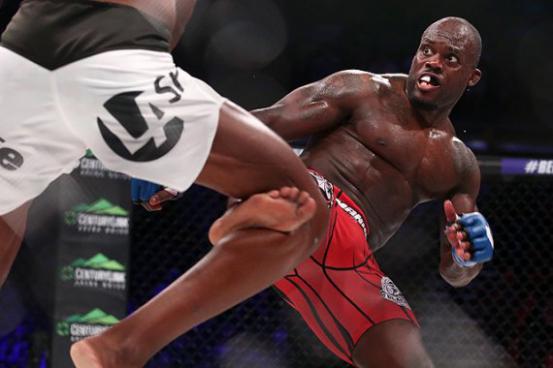- Commissioner’s statement on Ventura, Marte
- Ronnie O’Sullivan: Masters champion ‘felt so vulnerable’ in final
- Arron Fletcher Wins 2017 WSOP International Circuit Marrakech Main Event ($140,224)
- Smith challenges Warner to go big in India
- Moncada No. 1 on MLB Pipeline’s Top 10 2B Prospects list
- Braves land 2 on MLB Pipeline’s Top 10 2B Prospects list
- Kingery makes MLB Pipeline’s Top 10 2B Prospects list
- New Zealand wrap up 2-0 after Bangladesh implosion
- Mathews, Pradeep, Gunathilaka to return to Sri Lanka
- Elliott hopes for rain for Poli
The Bottom Line: Save the Outrage
- Updated: May 24, 2016

Following 25 grueling minutes (for spectators) on Friday, the Bellator MMA middleweight title fight between Rafael Carvalho and Melvin Manhoef went to a judges’ decision. The champion Carvalho, who had done next to nothing to win the fight, was declared the winner via split decision on 48-47, 47-48 and 48-47 scorecards. Announcers Jimmy Smith and Sean Grande were apoplectic. Message boards exploded in anger. Even referee John McCarthy seemed disgusted. It was greeted an all-time embarrassment of a decision. Hold your horses. The upset and tumult might be better off pointed in another direction or saved for another occasion. The 18th century English judge William Blackstone is known for his principle that it is better to let 10 guilty men free than to imprison one innocent. The view, widely held, is that it is far worse for an injustice to be perpetrated on someone who deserved better than to let someone go free when they merit punishment. The concept is of course intended for the criminal law, but the notion also applies surprisingly well to MMA judging. The principal reason there was such aggravation over Carvalho winning is that he deserved to win so little. He got in precious little offense and the fight consisted of long periods where nothing of note happened. It was like an audition for Sherdog’s All-Pacifist Team. However, it wasn’t like Manhoef turned in a distinguished performance. He was likewise passive, plodding and ineffective. It was a fight where both men deserved to lose. In rounds where there is very little action, strange scorecards tend to surface. There just isn’t that much to differentiate the fighters. As fighters engage more, there’s more to evaluate and class tends to show. Many of the most controversial decisions of all-time were inactive …
continue reading in source www.sherdog.com
